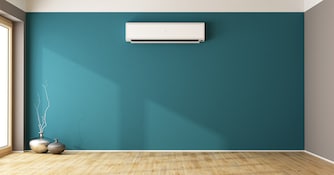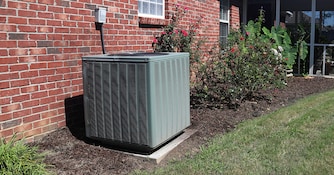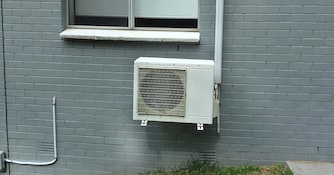
How to Find A Good HVAC Contractor
You've done your research and decided which equipment is best for your home, now you need to figure out what to look for in a good HVAC contractor.
As you probably already know, installing and repairing HVAC equipment isn't a DIY job.
This type of work is highly technical and best left to the professionals. HVAC technicians can help you with many key decisions like what size and type of equipment is best for your home, helping with the decision-making process, and of course, installing heating and cooling equipment.
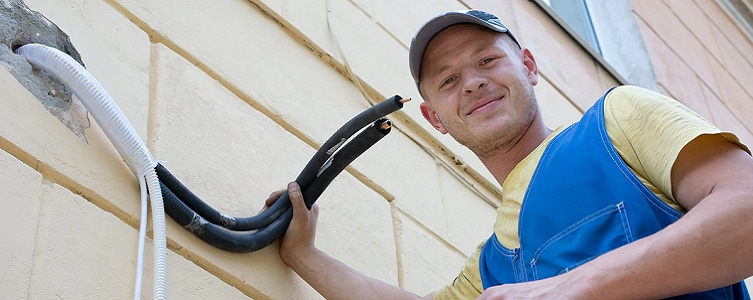
Contractor Checklist
Don't make the mistake of only "shopping around" for the cheapest installation, you should also look for an HVAC contractor that is:
- NATE HVAC Certified
- Licensed
- Insured
- Professional
- Highly Recommended
Choosing a Contractor
There are a number of reasons why you should hire a professional HVAC contractor. Most of our products are not 'consumer goods' that can be simply plugged in.
Improper installation of a product, or any installation that does not comply with the manufacturer's recommendations will void the warranty.
HVAC technicians should know about and avoid common pitfalls and installation errors that end-users may make. Finally, a contractor's labor warranty saves you from unexpected costs should a product failure occur shortly after installation.
Considerations for Choosing an HVAC Contractor
 License: Many states and/or municipalities require licenses for companies or individuals that do certain types of work. If you're not sure, call your local government (often called the Department of Building & Zoning) to ask.
License: Many states and/or municipalities require licenses for companies or individuals that do certain types of work. If you're not sure, call your local government (often called the Department of Building & Zoning) to ask.
Insurance: Professional HVAC contractors should always carry both General Liability & Workers Compensation and Employers' Liability policies. Common coverage for General Liability is $1,000,000 per occurrence and $2,000,000 aggregate. Common coverage for Workman's Compensation and Employers' Liability is $100,000 per accident and $500,000 aggregate.
Recommendations & Reviews: If available, trusted opinions from those close to you are a great source of information. If a friend or family member has had a positive experience with a contractor, that's a great start! Other good resources are public reviews on sites like Angie's List, Yelp, or HomeAdvisor.com.
Experience: You might want to consider whether the contractor has experience installing the product you're considering or similar products. If they can provide references or contact information from previous customers, it's a good idea to research further.
Price: Labor rates vary greatly by region. Typical rates in larger cities can be $85 - $125 per hour. However, it's not always a great idea to go with the least expensive contractor. Know that the price you pay up-front is not necessarily the price you'll pay over the long run. It's often worth paying a little more for the peace of mind of a professional contractor with a good reputation or strong qualifications.
Factory Training or Certification: Sometimes manufacturers offer factory training or certification on products to contractors. If your contractor is certified by NATE (North American Technician Excellence) or the manufacturer, it's a good indicator of knowledge about the product and its installation.
eComfort Installation
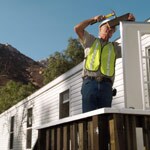 You could do all of the above research yourself, or you could have eComfort set you up with a certified, trained, licensed and bonded HVAC professional from our trusted installer network.
You could do all of the above research yourself, or you could have eComfort set you up with a certified, trained, licensed and bonded HVAC professional from our trusted installer network.
Our eComfort Installation program takes care of everything--from helping you choose the right furnace or air conditioner, to finding the right installer, to setting up a convenient inspection and installation that is totally on your schedule.
![]() Learn more about our eComfort Installation Program.
Learn more about our eComfort Installation Program.


